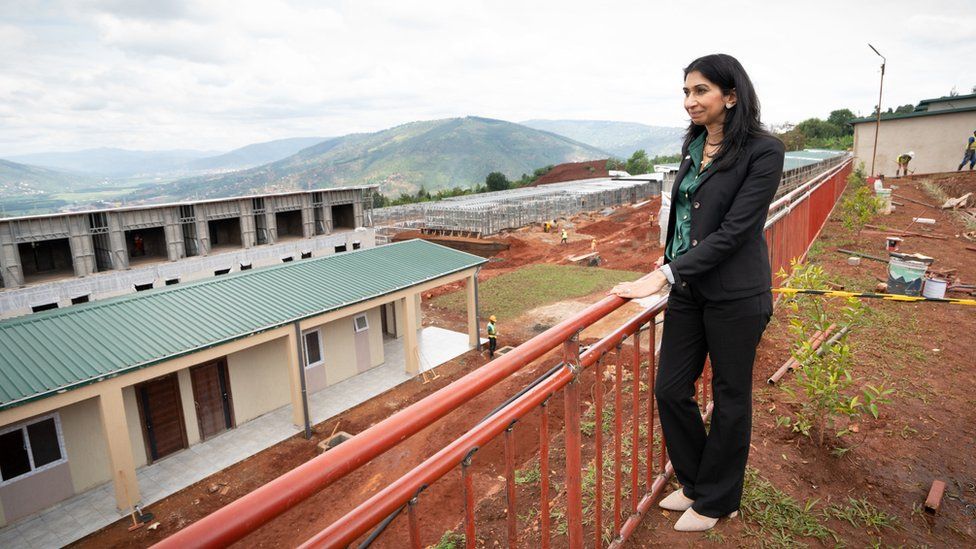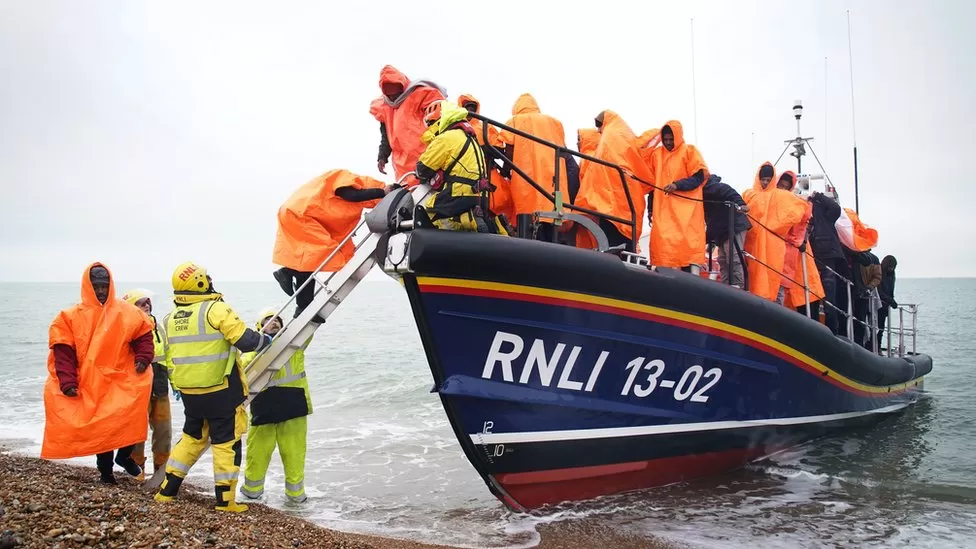The Rwanda result at the Court of Appeal is the worst possible world for the government in both legal and political terms.
Two judges have declared the government has broken the law on claiming Rwanda is safe.
This ruling came down to the strength of arguments presented by the UNHCR, the United Nations’ refugee agency, which intervened in the case as the acknowledged experts.
The court did not rule against the principle of off-shoring asylum claims to a third country.
But politically, even that raises a very difficult question: where is the government proposing to send people, if not to Rwanda?
- UK’s Rwanda asylum policy ruled unlawful by judges
- Why does the UK want to send asylum seekers to Rwanda?
- Land of safety – or fear? Why Rwanda divides opinion
And that’s why this saga has become a quagmire which may run up against a ticking general election clock, a point I will come back to.
The central question for the Court of Appeal was this: is Rwanda a safe and reliable place that would give asylum seekers a fair hearing?
There was a mountain of evidence from the UNHCR, and even the government’s own officials, that Rwanda’s record on handling asylum applications was poor.
On the other hand, ministers said Rwanda had given copper-bottomed guarantees and diplomatic assurances of fair treatment.
It’s the reliability of those assurances – given in good faith, it was heard – that has crashed and burned at the Court of Appeal.
By two to one, a majority of the court’s three judges found Rwanda’s asylum system was so poor that sending someone there would amount to breaching their right not to be tortured or subjected to inhuman treatment. They could be sent back to their home countries, potentially to their deaths.
The soon-to-retire Lord Chief Justice disagreed, concluding that it was unlikely this would ever happen. Rwanda, he said, had no agreements in place to send asylum seekers back to their home countries – and the UK had a monitoring plan.

So that’s why the government wants to appeal to the Supreme Court – but it must first convince the judges to give it permission.
Ministers must show there is a “point of law of general public importance.”
The split ruling means a Supreme Court appeal looks likely – but there could also be counter-appeals from the claimants who lost on some of their important points.
One of these could come from the charity Asylum Aid.
It had argued that it simply wasn’t lawful to give asylum seekers just seven days to make representations against their transportation to Rwanda – potentially without the help of an expert lawyer while they’re in prison-like conditions.
The Court of Appeal’s 161-page judgment shows it had genuine reservations about whether this was fair.
But it decided it could be lawful, providing the Home Office had proper safeguards in place.
The claimants say there’s no evidence these exist – such as proper guidelines for the officials deciding a migrants’ fate.
“There are clear deficiencies in the process, some of which have been recognised by the court,” says Tessa Gregory, the charity’s lawyer.
“Asylum Aid will consider whether it is necessary to appeal.”
The ruling also has implications for Parliament.
The Illegal Migration Bill is at a critical stage in the House of Lords.
That controversial legislation would require the home secretary to send most of the people who cross the English Channel to claim asylum to third countries.
But which countries?
“Even with a Rwanda deal in place, it has never been clear how easy this would be,” says Dr Peter William Walsh of Oxford University’s independent Migration Observatory.
“If there are no safe third countries accepting the UK’s asylum seekers, the core idea behind the policy can’t be implemented.
“In essence, all the eggs are in one basket and this basket is looking fragile.”
What’s clear is that time is running out.
Assuming judges grant the government’s wish and send the case to the Supreme Court, the case probably won’t be considered before September or October.
And that means its judgment might not come until the end of the year, or early in 2024.
If the government won, each person allocated to a proposed new flight, perhaps in February or March, may be able to challenge their inclusion.
There could still be individual claims to the European Court of Human Rights.
And all of this in a countdown to a General Election.
